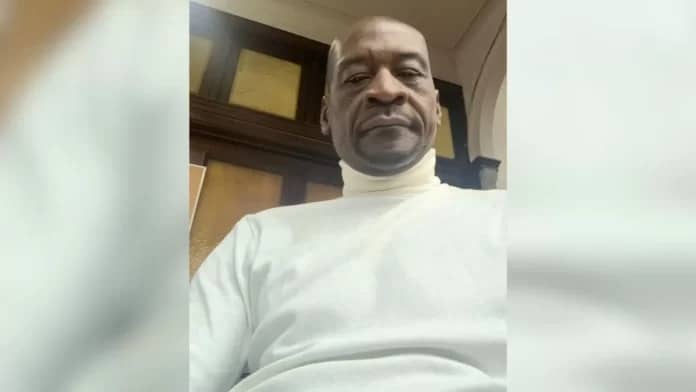
By Dr. Oswald Thomas
The global community is focusing on mental health awareness and suicide prevention this month.
Most unfortunately, Antigua and Barbuda have seen a rise in suicide and suicidal attempts over the years, and police involvement with the mentally ill has not always ended well.
Taken together, these factors suggest that lawmakers need to change our laws and policies to ensure that adequate resources are provided for those suffering with mental illnesses.
We must begin to enact laws the protect the Civil Rights of Persons with Mental wellness challenges.
This means that we cannot compromise the rights of those institutionalized and/or otherwise detained, to pursue a good life with all the hopes and possibilities based on their mental illness.
Our policies and laws must be positively updated to care for those involuntarily committed to a hospital or those who choose to check into a clinic because they recognize their immediate need for short-term mental health treatment.
What accommodations have we made in our laws and policies to accommodate those who are not competent to proceed to trial?
Is there a standard procedure in place to evaluate cases before our nation’s courts of patients with mental illness who are not competent or needs to be referred for evaluation and/or competency restoration?
Who determines the length of time that should be allotted for restoration of competency before a mentally ill person is declared by the court as not guilty by reason of insanity or have their charges dropped completely?
It is my understanding that Sir Lester Bird Medical Centre has no psychiatric ward/unit to provide short/term care for up to 120 days for recovery, and where a patient may need long-term care that person could be sent to Clearview Hospital for long term treatment and stabilization.
Clearly, our healthcare providers must intentionally remove barriers for persons who wish to check-in for mental health care, but do not necessarily need long-term mental health care to help to end the stigma associated with mental wellness.
Our policies and laws cannot continue to ignore law enforcement officers, who may need mental health services to safeguard their own mental wellbeing and that of their families. Since Officers are required to protect the public, we must be mindful in providing them with all the support to do their jobs properly with incident.
Therefore, those officers with a history of psychiatric decompensation on the job or in the community should be subjected to an annual psychological evaluation.

These services must be given to every officer and should be part of the recruitment process before any new police is chosen for training. This same approach should augment well for the Defense Force and any or all Auxiliary security personnel.
It is not surprising that clinicians have discovered that persons who are contemplating suicide are dealing with difficult life issues couple with mental health problems. Symptoms may include negative thoughts, very low mood, severe anxiety and psychosis, all of which may lead to suicidal thinking.
Experts also posited that those who ended their lives, really didn’t want to die; however, they believe that they had no other choice in relieving inner pain. Most suicidal victims could be suffering from hopelessness, with a thought process that things will not ever get better. Feelings of being overwhelmed and looking for a release from distress are common to people who take their lives.
People suffering from mental health conditions such as psychosis, depression, and substance use/abuse are generally connected with an increased risk factors for suicide. Simply because a person is experiencing these risk factors doesn’t mean that person will attempt to or become suicidal.
Our laws and policies must be based on providing Protective services such as effective mental health care, psychotherapy, counselling, social support, family and peer connectedness. These interventions are known to reduce suicide risk.
According to the American Psychiatric Association, suicide is linked to mental disorders, more so depression as well as alcohol use disorder however, the strongest of risk factors for suicide are persons who have attempted suicide previously.
Risk factors that contribute to suicide are: 1. Past suicide attempt(s), 2. A family history of suicide, 3. Substance Use/Abuse, 4. Mood disorders such as bipolar disorder and/or depression, 5. Availability of or access to firearms or unlocked prescription drugs in the home, 6. The breakup of a relationship and/or the death of a loved one, school/college failures academically, problems with legal matters and financial problems, 7. Trauma and/or abuse history, 8. Bullying, 9. Chronic pain and chronic physical illness that will not go away such as diabetes, asthma, arthritis or cancer, 10. Exposure to other suicidal behaviors, 11. Isolation socially, and, 12. Stigma connected to seeking help.
In fact, the CDC focuses on suicide complexities and while it’s true that mental health conditions could be a factor in contributing to persons wanting to take their own lives.
There are several other factors contributing to suicide for persons with or without mental illness or mental health conditions. Relationship problems is the number one (1) factor that contribute to suicide followed closely by past or upcoming crisis within two weeks and substance use. What are the warning signs of a person’s intent to commit suicide?
These are: 1. The person(s) frequently talking or writing about suicide, death or dying, 2. The person making statements about feelings of hopeless or worthlessness, 3. Making statements that there is no reason to live anymore, having no purpose in life, using such words as “I wish I could just go to sleep and don’t wake up or someone just kill me.”,
4. Excessive use of drugs and alcohol, 5. Self-isolation from family, friends and their community, 6. Engaging in risky activities and reckless types of behaviors with little or no thought processes, 7. Sudden and dramatic changes in mood, and 8. Making statements of feeling trap and/or feelings of being a burden to family, friends, and others.
The need to develop a comprehensive public health strategic approach for the prevention of suicide cannot be overstated. Teaching problem-solving techniques and coping skills devolvement can help people to manage life challenges.
We must adjust our policies and laws to create real options offering temporary and permanent assistance for people in need and provide at-risk individuals with access to proper and effective physical and mental health care.
Our policies should encourage every healthcare provider including Allied Health Professionals such as dental hygienists, diagnostic medical technologists, occupational therapists, physical therapists, radiographers, respiratory therapists, and speech language pathologists to simply ask the patients before they leave your care a series of mental health questions.
For example, I recommend the Columbia-Suicide Risk Screener: “1) Have you wished you were dead or wished you could go to sleep and not wake up? 2) Have you had any thoughts of killing yourself? If yes to question two, then ask question 3, 4, 5 and 6. Question 3) Have you been thinking about how you might do this?
4). Have you had these thoughts and had some intention of acting on them? 5). Have you started to work out or worked out the details of how to kill yourself and do you intend to carry out this plan? And 6). Have you done anything, started to do anything, or prepared to do anything to end your life?
If the answer to question 2 was no, then the professional would go directly to question 6 and would be able to assess an estimated current risk status for the patient’s clinical presentation and history considered for A. Low risk, B. Moderate Risk, C. High Risk for suicide.
Dr. Oswald Thomas (BPS., MS., Ph.D., Ch.T., Ph.D.) is a Staff Clinical Psychologist with New Jersey State of Health and Addictions in one of New Jersey’s Psychiatric Hospitals and a Clinical Psychologist with Long Island City Psychotherapy Services.
Dr. Thomas also serves as a director on the governing board of The University of The Commonwealth Caribbean and a candidate to replace Sir Robin in St. Phillip’s North.
CLICK HERE TO JOIN OUR WHATSAPP GROUP
CLICK HERE TO JOIN OUR WHATSAPP GROUP
CLICK HERE TO JOIN OUR WHATSAPP GROUP
CLICK HERE TO JOIN OUR WHATSAPP GROUP
Advertise with the mоѕt vіѕіtеd nеwѕ ѕіtе іn Antigua!
We offer fully customizable and flexible digital marketing packages.
Contact us at [email protected]















